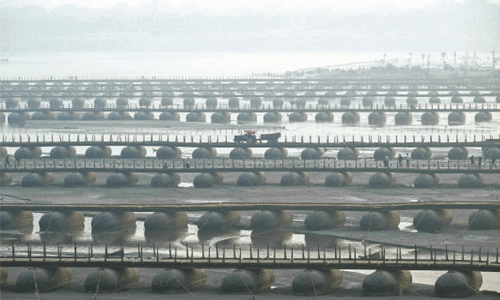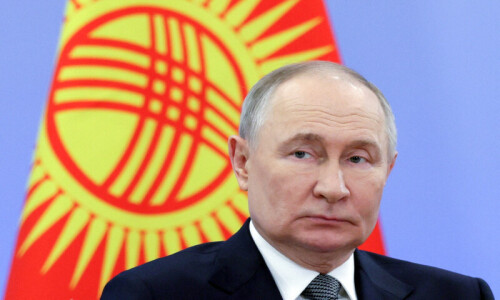SINGAPORE, April 15: Pakistan could double its wheat imports this year and may slap a tax on rice exports to rein in inflation, a senior trader said on Tuesday, adding to global anxiety over record food prices and thinning supplies.
As major rice exporters Vietnam and India clamp down on shipments, buyers have rushed to Pakistan, the world’s fifth-largest seller, said Najib Balagamwalla, chief executive of Sea Trade, a leading Pakistan-based commodities trader.
But with inflation at a 13-year high, Islamabad could join the growing list of governments seeking to tame rising prices by discouraging overseas sales. At the same time, with nearly half the country at risk of running short of food, it may buy as much as 3.5 million tonnes of wheat, he said.
“The government will probably put a duty on rice exports,” Balagamwalla told Reuters in an interview.
“Local rice prices have doubled in a few months and will rise another 50 per cent if there is no immediate government intervention.”
Pakistan is expected to produce 5.5 million tonnes of rice in the year to June 2008, and after domestic consumption should have an exportable surplus of about 3.3 million tonnes, according to officials of the Rice Exporters Association of Pakistan.
The country produced 5.4 million tonnes of rice and exported about 3.1 million tonnes in the previous year, equal to about one tenth of world rice trade.
“Importers are scrambling to buy Pakistani rice and exporters are of course getting very good prices. But the concern is building up in the domestic market,” Balagamwalla added.
Exporters would resist any move to impose a duty.
Rice, a high-value cash crop, accounts for about eight per cent of Pakistani exports and 1.2 per cent of gross domestic product.
High food prices lifted Pakistan’s consumer price inflation to 14.12 per cent year-on-year in March, the highest in 13 years.
Pakistan produced 23.3 million tonnes of wheat in the 2006/07 crop year and had to import 1.7 million tonnes after a shortage in September that resulted in soaring domestic prices.
But Balagamwalla said output could fall to 22 million tonnes this year, about 2 million tonnes lower than earlier estimates, due to erratic weather and a delay in announcing the procurement price the government pays farmers. A lower than hoped-for price also led to a fall in wheat cultivation, he said.
“We are at the start of the wheat season but we are already in a crisis,” Balagamwalla said.
“I think we should be importing at least 3.5 million tonnes of wheat this season.” He said that provincial governments were struggling to procure wheat from farmers who were hoping to get even higher prices in the open market.
The government has announced a procurement price of 510 rupees ($8.17) per 40 kg, far less than global prices. Food ministry officials say it will be difficult for the government to meet its target of buying 5 million tonnes at that price.—Reuters















































Dear visitor, the comments section is undergoing an overhaul and will return soon.